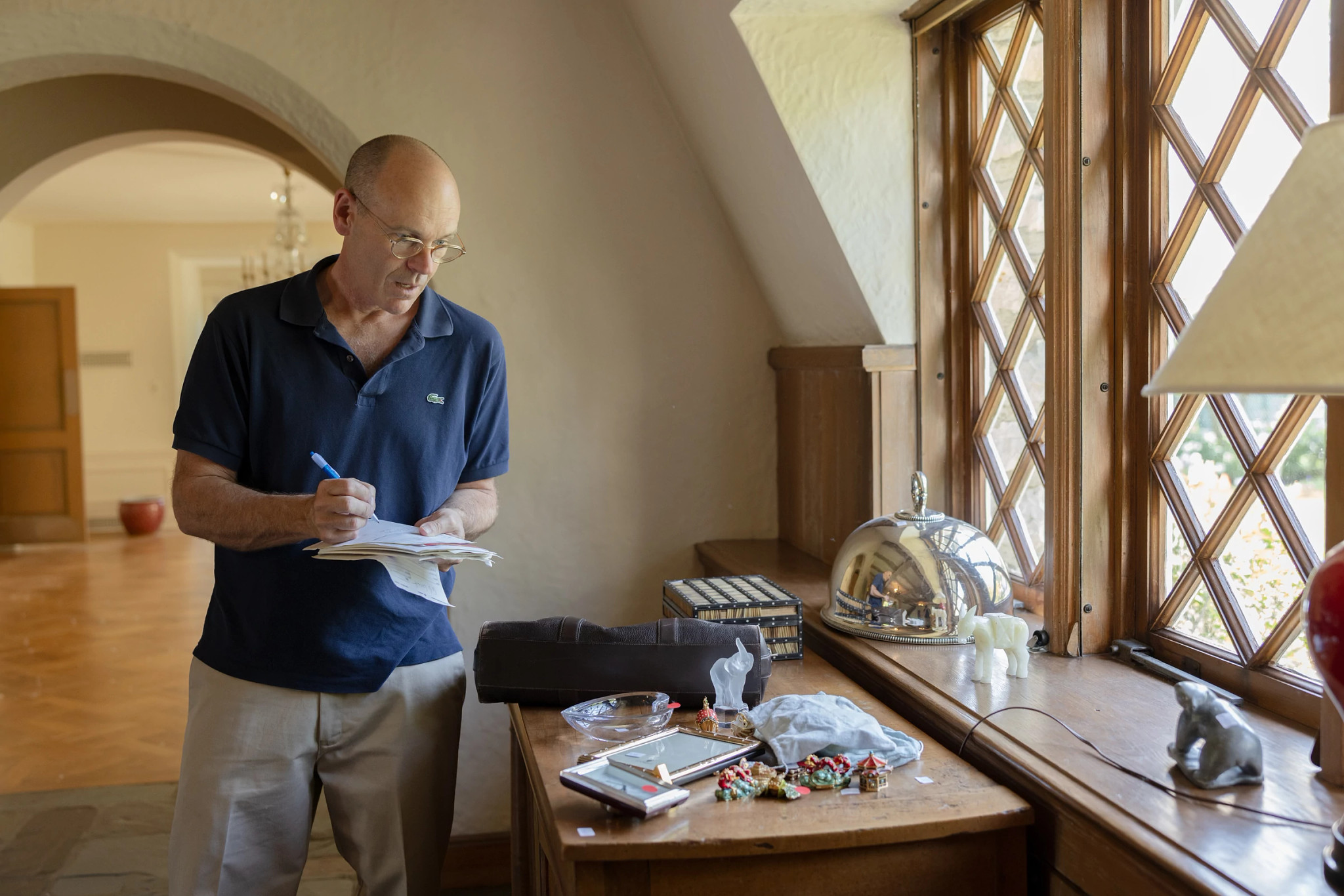AARP Hearing Center

.jpg?crop=true&anchor=19,156&q=80&color=ffffffff&u=2xkwh0&w=2017&h=1159)
Andy Harmata grew up attending estate sales with his mom and two sisters, and has fond memories of picking through accumulated goods in other people’s homes. However, when his mother passed away six years ago and it came time to clear out her home, he decided to hire an estate sale company to oversee the process. “But they kind of ripped me off,” the Chicagoland native says. “They sold a bunch of stuff that I had marked not to sell, and they charged 30 to 50 percent on the items sold. I felt pretty grimy about the whole thing.”
Fast-forward to today and Harmata recently got around to holding another estate sale, this time on his own, for items that he didn’t unload at the original sale. He promoted the event on EstateSales.net. His years of attending other estate sales, plus watching countless episodes of Pawn Stars and Barter Kings gave him the confidence and knowledge that he needed when pricing the items for sale. He set aside some family memorabilia, like his mom’s photo albums, to give to his sisters, but tagged nearly everything else. In the estate sale’s first day alone, Harmata made over $1,000 in cash.
Hosting an estate sale for a deceased loved one can be an emotional experience. As a result, many people choose to hire a company to do the job for them. But estate sale services take a big chunk out of a seller’s profits — typically 30 percent of the gross proceeds, 40 percent if the items, or the home itself, are in poor condition.
If you’re planning to hold an estate sale on your own, here are eight costly mistakes to avoid.
1. You undervalue items
Before opening up a home (or garage) to strangers in hopes of making money off a deceased relative’s belongings, it’s first best to understand the marketplace you’re selling in, says Kelly Harris, a real estate agent in Dallas and a former partner at FairMarketDFW, an estate sale company.
If you need help researching the values of certain items, especially antiques, collections, crystal, jewelry and art, it could make sense to hire an appraiser for a small fee — typically between $100 and $250 — to help you determine how much the items are worth, Harris says.
Word-of-mouth recommendations for appraisers can be a good starting point. (If you’re selling your loved one’s home, you real estate agent may have some leads.) You can also check out the websites of the top three appraiser associations — the American Society of Appraisers, the International Society of Appraisers and the Appraisers Association of America — to find appraisers in your area and read customer reviews.
Depending on what you’re selling, you may need to adjust your expectations. For example, fine china often isn’t as valuable as it once was, Harris says; she sells complete sets for $200 that might have sold for $800 a decade ago. Vases, meanwhile, sell for around $60. “People can go to HomeGoods and get them new,” she says.
2. You don’t get the word out
Don’t just stick an “estate sale” sign in front of the house and wait for shoppers to come. Once you’ve priced items to your satisfaction and set a date for the estate sale, it’s time to promote the event to maximize traffic. Consider placing signs on the busiest parts of the street, perhaps with a QR code that passersby can scan to guide them to your event’s online listing with images of what’s being sold, dates and times, and your contact information.
You can also broadcast the sale on social media. For example, you might take out an ad on Instagram for a small fee, or post an announcement of the event on Nextdoor or Eventbrite. Harris posts photos of every estate sale item on her Instagram account, as well as on EstateSales.net, and often creates hashtags with keywords — such as “luxury,” “high-end,” “designer,” “one-of-a-kind,” “collectors,” “fine china,” “statement piece,” “signed by the artist,” “stamped” and “certificate of authenticity” — to draw attention. She says she doesn’t show the location of the sale until the day before opening. EstateSales.net has a user-friendly mobile app.
If you’re selling large pieces, such as sofas or grandfather clocks, Harris recommends connecting with a moving company in advance and having business cards available at the sale for shoppers. “Just in case a big piece of furniture sells, you can provide the service for the person coming in,” she says. Bonus: the mover can also help you promote the event ahead of time.































































More From AARP
Five Financial Steps to Take Now (and One Not to Take)
Don’t let your demise cause financial chaos for your family
Dollar Store Items You May Want to Avoid
Not every buy at dollar stores is a good deal25 Ways to Bind up Grief’s Wounds
How to heal when the deep shadows of loss pierce your heartRecommended for You